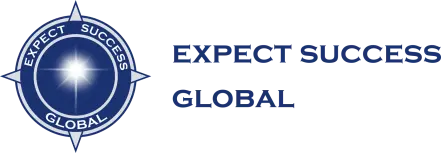What Is Time Management?
Time management is the practice of effectively organizing and utilizing our time to maximize productivity and achieve desired goals. It involves prioritizing tasks, setting clear objectives, and implementing strategies to make the most of each day. Time management is essential in today’s fast-paced world, where we are constantly bombarded with numerous distractions and responsibilities that can easily overwhelm us.
By implementing effective time management techniques, we can reduce stress levels, increase efficiency, and ultimately achieve better results in both our personal and professional lives. We will explore various strategies and tips to help you take control of your time and maximize your productivity.
Whether you are a student, professional, or simply looking to improve your time management skills, these insights will prove invaluable in helping you make the most out of each day.
Benefits of Time Management
Effective time management is crucial for achieving a healthier and more balanced lifestyle. By properly managing our time, we can reduce stress, increase energy levels, achieve our goals efficiently, and accomplish more in less time.
One key benefit of effective time management is reducing stress. Having a clear plan and schedule for our tasks and responsibilities makes us less likely to feel overwhelmed and stressed. For example, by prioritizing our tasks and breaking them into manageable chunks, we can approach them individually, effectively reducing stress levels.
Another benefit is increased energy. We can recharge and replenish our mental and physical energy by allocating time for adequate rest. This allows us to approach our tasks with renewed vigor and focus. For instance, taking regular breaks and practicing deep breathing exercises can help us maintain high energy levels throughout the day.
Additionally, effective time management helps us achieve our goals efficiently. By setting clear priorities and allocating time for essential tasks, we can progress toward our goals steadily. For example, we can make significant progress each day by using project management software and breaking down large projects into smaller, actionable steps.
Lastly, effective time management enables us to accomplish more in less time. We can maximize productivity by eliminating time-wasting activities and focusing on the most critical tasks. For instance, by using time-tracking tools and setting strict time limits for tasks, we can increase efficiency and accomplish more within a limited timeframe.
In conclusion, effective time management brings numerous benefits, including reduced stress, increased energy levels, efficient goal achievement, and the ability to accomplish more. We can lead a healthier and more balanced lifestyle by prioritizing and managing our time effectively.
Strategies to Help Manage Your Time
Effective time management has become more crucial in today’s fast-paced world. By utilizing the right strategies, we can maximize our limited time and achieve maximum results. One key strategy is prioritizing tasks and breaking them down into manageable chunks. This lets us approach each task with focus and clarity, reducing stress and increasing efficiency.
Additionally, setting clear goals and allocating dedicated time for essential tasks helps us make steady progress toward our objectives. Moreover, eliminating time-wasting activities and distractions and using time-tracking tools can significantly enhance productivity. By implementing these strategies, we can optimize our time and accomplish more in less time, leading to greater success and fulfillment in both our personal and professional lives.
Focus on the Most Important Tasks First
One key strategy in effective time management is to focus on the most critical tasks first. Prioritizing tasks allows us to allocate our time efficiently and enhance productivity. By following this strategy, we can achieve maximum results.
To prioritize tasks effectively, we must rank them based on their importance and urgency. This involves identifying the critical functions that require immediate attention and focusing on them first. This helps prevent wasting time on less important tasks and allows us to allocate our mental energy and resources to the tasks that truly matter.
Prioritizing tasks also ensures that we work on functions aligning with our goals and objectives. It helps reduce stress levels by tackling urgent tasks before they become overwhelming. By tackling the most critical tasks first, we can gain a sense of accomplishment and motivation, enhancing overall productivity.
In conclusion, prioritizing the most important tasks is a crucial strategy for effective time management. By focusing on these tasks, you can maximize your time, reduce stress, and achieve desired results efficiently. Prioritization also allows you to allocate your resources wisely, enhancing productivity and success.
Schedule Out Your Day
To effectively manage your time, scheduling your day is crucial. By assigning specific times to tasks, you can maximize productivity and avoid the trap of procrastination.
Start by creating a daily schedule that outlines all the tasks and activities you need to accomplish. Be realistic and consider your energy levels and the time required for each task. Assign specific time slots to each task, prioritizing the most important and time-sensitive ones.
Assigning specific times to tasks helps in several ways. Firstly, it creates a sense of structure and order in your day. It provides a clear roadmap of what needs to be done and when—reducing the likelihood of getting overwhelmed or forgetting important tasks.
Secondly, allocating specific time slots makes you less likely to procrastinate. Knowing you have allotted time for a particular task creates a sense of urgency and accountability. It helps beat the temptation to delay or postpone tasks, ensuring that they are completed on time.
To further enhance organization, create daily to-do lists and break down tasks into manageable chunks. Prioritize your tasks based on importance and urgency, and account for potential interruptions or unexpected events that may arise throughout the day.
By scheduling your day and assigning specific times to tasks, you can effectively manage your time, increase productivity, and achieve your goals. So, start implementing this simple strategy today and experience the difference it can make in your daily life.
Set Time Limits for Tasks
Setting time limits for tasks is crucial in maximizing focus and efficiency. By allocating a specific amount of time to each task, you create a sense of urgency that helps prevent time-wasting and increases productivity.
Time limits motivate you to stay on track and complete tasks within a specified period. When you know you have a limited amount of time to accomplish something, you are more likely to stay focused and avoid distractions, leading to quicker and more efficient completion.
Moreover, setting constraints allows you to recognize potential problems better and plan to address them. When you have a clear time limit, it becomes easier to identify if a task is taking longer than anticipated or if any roadblocks hinder progress. This insight enables you to adjust your approach, delegate, or seek help if needed, ultimately avoiding unnecessary delays and ensuring timely completion.
Two effective time management strategies for setting time limits are the Pomodoro Technique and timeboxing. The Pomodoro Technique involves breaking work into focused intervals, usually 25 minutes each, followed by short breaks. This technique helps you maintain concentration while allowing regular rest periods to recharge.
Conversely, timeboxing involves assigning a specific time frame, or box, for each task. This technique helps prioritize tasks and ensures that you allocate an appropriate amount of time for each. Sticking to the allocated time limits creates a sense of structure and discipline, reducing the risk of overcommitting or getting overwhelmed.
In conclusion, setting task time limits enhances focus, efficiency, and problem recognition. Incorporating techniques like the Pomodoro Technique and timeboxing can further support effective time management by enabling task prioritization and allocating appropriate time for each task. Well-defined time limits can help you maximize your productivity and achieve your goals more effectively.
Prioritize Urgent Tasks
Prioritizing urgent tasks is a crucial aspect of effective time management. By identifying and addressing time-sensitive tasks first, you can ensure that critical deadlines are met and prevent unnecessary stress and last-minute rushes.
One effective method for prioritizing urgent tasks is the Eisenhower Matrix. This matrix categorizes tasks based on their level of importance and urgency. Tasks are divided into four quadrants: urgent and important, important but not urgent, urgent but not important, and not urgent or important. By categorizing tasks in this way, you can see which tasks require immediate attention and which can be delegated or postponed.
Another way to prioritize urgent tasks is to set deadlines for all tasks, even those that don’t have inherent deadlines. By assigning a specific completion date, you create a sense of urgency and ensure that tasks are completed promptly. This practice also helps prevent procrastination and keeps you focused on your priorities.
In conclusion, prioritizing urgent tasks is essential for effective time management. Utilizing methods like the Eisenhower Matrix and setting deadlines can help ensure that important tasks are addressed promptly and efficiently, increasing productivity and reducing stress.
Break Down Large Projects into Manageable Chunks
Breaking down larger projects into smaller, more manageable tasks is crucial for effective time management. This strategy helps overcome being overwhelmed and procrastinating by providing a clear roadmap and making the project seem more manageable.
Identify the main objectives and outcomes you want to achieve to break down projects effectively. This helps establish a clear vision and direction for the project. Once the objectives are defined, break them down into smaller tasks or milestones. These smaller tasks are easier to handle and can be completed within a specific timeframe, making the project more manageable.
Prioritizing these tasks is also essential. This involves determining which tasks need to be completed first and organizing them in a logical sequence. By setting priorities, you can ensure that your time and resources are allocated efficiently.
Categorizing related tasks together is another helpful technique. Instead of jumping back and forth between different types of tasks, grouping them based on similarity allows you to minimize mental switching and improve focus. This way, you can stay more engaged and productive while working on a particular category of tasks.
Overall, breaking down large projects into manageable chunks enhances productivity by providing clarity, reducing overwhelm, and making progress more tangible. By following these steps and utilizing effective time management strategies, you can maximize your efficiency and achieve better results in your projects.
Estimate How Much Time a Task Will Take
Estimating how much time a task will take is crucial to effective time management. By accurately assessing the duration of a task, you can plan your schedule more efficiently and avoid overcommitting yourself.
To estimate task duration, consider various factors such as the complexity of the task, the resources required, and your previous experience with similar tasks. Breaking down tasks into smaller subtasks can help you understand the time needed for each step. Consult your time logs and past experience to gauge how long similar tasks have taken you.
Setting realistic estimates ensures you can realistically complete your tasks within the given timeframe. Overestimating or underestimating can lead to time management issues, such as feeling overwhelmed or missing deadlines. By acknowledging the potential obstacles or dependencies associated with a task, you can factor them into your time estimation and plan accordingly.
By accurately estimating task durations, you can optimize your time management skills and make the most efficient use of your available time and resources. This will help reduce stress levels and increase your productivity in both your personal and professional life.
Single-Tasking Rather Than Multitasking
Single-tasking is a strategy that can significantly improve productivity and overall efficiency. Unlike multitasking, which involves juggling multiple tasks simultaneously, single-tasking focuses on completing one task at a time before moving on to the next.
Studies have shown that multitasking can decrease productivity and negatively impact working memory and focus. Constant switching between tasks can lead to decreased performance and increased errors. On the other hand, single-tasking allows for sustained focus and effort, leading to better time management skills.
Focusing on one task at a time allows you to give it your full attention and complete it more efficiently. This approach allows you to allocate your mental energy and resources more effectively, resulting in better-quality work. It also helps to reduce stress levels and improve overall job satisfaction.
To implement single-tasking effectively:
- Start by prioritizing and breaking your tasks into manageable chunks.
- Set aside specific time blocks for each task and eliminate distractions to maintain focus.
- Remember to take regular breaks to recharge and maintain optimal productivity.
In conclusion, single-tasking is a more effective approach to time management than multitasking. By committing to doing one task at a time, you can improve productivity, enhance working memory, and maintain better focus.
Make Use of Apps or Tools to Track and Log Your Time Usage
In today’s fast-paced world, time management is a crucial skill for maximizing productivity. One effective way to achieve this is by utilizing time management apps or tools to track and log your time usage. These apps provide numerous benefits that help individuals become more efficient and focused.
One key advantage of time management apps is that they make you more aware of how you spend your time. By tracking and logging your time usage, you gain insights into your daily habits, revealing potential areas of time waste that you may have overlooked. This awareness allows you to see where your time is being allocated and identify areas that need improvement.
Furthermore, time management apps enable you to streamline your tasks. By tracking and logging your time, you can analyze which tasks take up the most time and make adjustments accordingly. By identifying tasks that consume excessive time, you can look for ways to optimize and improve their efficiency, freeing up more time for other important activities.
Additionally, these apps help eliminate distractions by focusing your attention on the task at hand. By tracking time usage, you become more accountable and committed to completing your tasks within a specific timeframe. This increased focus minimizes the tendency to get sidetracked or waste time on non-essential activities.
In conclusion, time management apps or tools that track and log your time usage can be powerful assets in maximizing productivity. By becoming more aware of how you spend your time, identifying areas of time waste, and streamlining your tasks, you can optimize your efficiency and accomplish more in less time. So why not use these apps and take control of your time for maximum productivity?
At Expect Success Global, we’re experts in helping others succeed in whatever ways they need. If you are curious about how we can help you, contact us today to get started!
Schedule A Free Coaching Call




